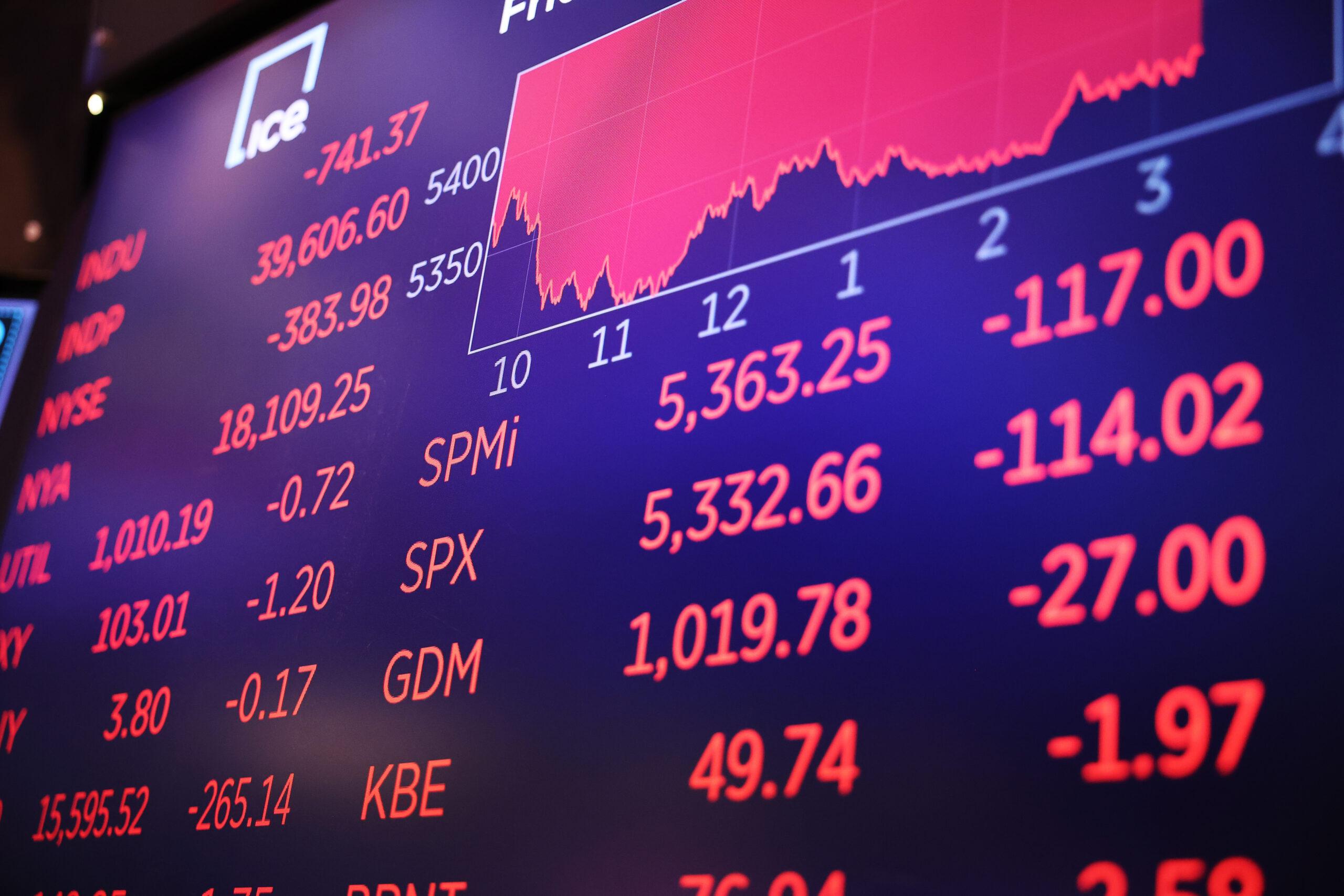Market Meltdown FAQ: Recession Fears, Global Stock Wipeout, and the Case for Calm
Bloomberg’s Conor Sen joins Derek for a special episode to examine all of the recent economic and financial fears
In a special emergency-ish episode, Bloomberg’s Conor Sen joins the show to discuss a buffet of economic and financial fears, including a disappointing jobs report, a meltdown in global stocks, the “carry trade” heard round the world, the smartest criticisms of (and smartest defense of) the Federal Reserve’s decision not to raise interest rates, and more.
If you have questions, observations, or ideas for future episodes, email us at PlainEnglish@Spotify.com.
In the following excerpt, Conor Sen and Derek explore the recent stock market moves and dive into the details of the yen carry trade.
Derek Thompson: We are recording this at 3:04 p.m. EST, and the state of things is as follows. The Nikkei is down by the most since 1987. Asian stocks are a bloodbath. The Dow is down 1,000 [points]. The S&P is down more than 3 percent. And this all comes just days after a jobs report showed that the unemployment rate has increased by 0.8 points in the last 12 months, potentially triggering a threshold that has historically predicted the imminence of a recession. Let’s start with today and then maybe work our way back in time to talk about Friday’s jobs report. Do you think that today’s big market moves are primarily about something happening within finance that is between traders, between investors, or is this telling us something very profound about things that are happening in the labor force, in manufacturing, in the flesh-and-blood macro economy?
Conor Sen: I’d say the information we got last week put traders on notice that something might be changing in the future, but then today itself is really a trader mess. So there were a lot of trades that had been in place for a long time, and information we’ve gotten recently finally got people to say, “OK, the world has changed. We need to get out of these trades. We don’t know what’s next, but what we were doing is now over.”
Thompson: Let’s talk about one of those trades, which is the yen carry trade. And here, I would love it if you could explain carry trades to me as if I am 10, 15, 5 years old. Assume I know absolutely nothing about finance. What is going on with this carry trade that everybody in finance is talking about today?
Sen: Sure. So, basically, in the U.S., we have increased interest rates significantly over the past two or three years to 5.25 to 5.5 percent, which many of your listeners will know. Japan, which has struggled with deflation for a very long time, has had some of the inflation that the U.S. has had over the past few years, but the Bank of Japan did not raise interest rates the way that the Federal Reserve did. And so, essentially, you could borrow in Japanese yen and pay basically nothing on your money and invest in the U.S., earning 5 percent, or in any other number of assets around the world, and by doing so, you are essentially selling Japanese yen to buy something else. That has pushed the value of the Japanese currency down and also inflated the Japanese stock market because the Japanese economy is so tied to exports like automobiles with Toyota and Nissan and companies like that. So that’s essentially the carry trade in a nutshell, and that’s essentially what blew up over the past 24 hours or so.
Thompson: And why did it blow up?
Sen: That’s due to information in the U.S., primarily. So, the Bank of Japan had been reluctant to raise interest rates. They did raise them last night. But I think the bigger deal was the labor market data in the U.S. last week of a softening jobs report, softening labor market, which has pushed down interest rates in the U.S., sort of reduced the attractiveness of that carry trade because that interest rate differential between the U.S. and Japan has compressed. So you have less desirable investing overseas, and at the same time, the Bank of Japan raised the cost of borrowing in Japan, which made that borrowing in yen less attractive. So, those two forces collided, and everybody’s rushed for the exits.
Thompson: Right. One thing that I heard from some people is that there’ve been margin calls on the yen that were borrowed. So, essentially, I am an investor. I borrow a million yen. I convert it to dollars, say $6,000. Those dollars, suddenly, after this new currency rate adjustment, don’t buy the same amount of yen. Right? They might only buy, say, 900,000 yen rather than the 1 million that I borrowed. So, now, I’m in a position where I have to acquire 100,000 extra yen in order to pay back my counterparty. That means that not only do I have to sell out of my position—maybe it was in Meta, maybe it was in Alphabet—but also, I now have to buy yen, and that has the effect of raising Japanese currency and also reducing the value of these tech stocks that were such a popular buy, especially around hedge funds. Is that also a piece of it, this sort of rush among traders to shore up their position?
Sen: It definitely is. And at the same time, that increase in the value of the Japanese yen makes your Toyotas and Nissans less competitive in global markets. So that led to the crash in the Nikkei, the Japanese stock market, which was up significantly this year, just like AI stocks in the U.S., and is now basically flat on the year after a huge correction.
This excerpt was edited for clarity. Listen to the rest of the episode here and follow the Plain English feed on Spotify.
Host: Derek Thompson
Guest: Conor Sen
Producer: Devon Baroldi
Subscribe: Spotify

